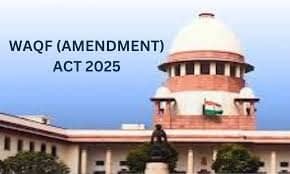
The Centre has just filed a detailed affidavit in the Supreme Court, defending the Waqf (Amendment) Act, 2025. The government argues that the Act is a legitimate exercise of its power, aiming to bring more transparency and curb misuse of waqf properties. In a hefty 1,332-page affidavit, the Centre stresses that while the Act handles the administrative side of waqf management, it respects the core religious practices of the Muslim community, leaving matters of faith untouched. The government also urges the Court to dismiss the petitions challenging the Act’s validity, pointing out that constitutional courts usually don’t stay laws without a final hearing.
A major point of debate is the ‘waqf by user’ provision, which deals with properties used for religious purposes but without formal documentation. The Centre clarifies that such properties will only be protected if they were registered as waqf by user by April 8, 2025, aligning with the long-standing requirement from the 1923 Waqf Act. The government argues that oral declarations alone aren’t enough, as they want to prevent unauthorized land grabs.
The Supreme Court has set the next hearing for May 5, 2025, to consider interim orders. In the meantime, the Centre has assured the Court that no waqf properties, including those under ‘waqf by user,’ will be altered or de-notified, and no new appointments will be made to waqf boards before the next hearing.
The case has definitely caught the public’s attention, with several political and religious groups challenging the Act. The outcome of this case could have major consequences for how waqf properties are managed and regulated across the country.




